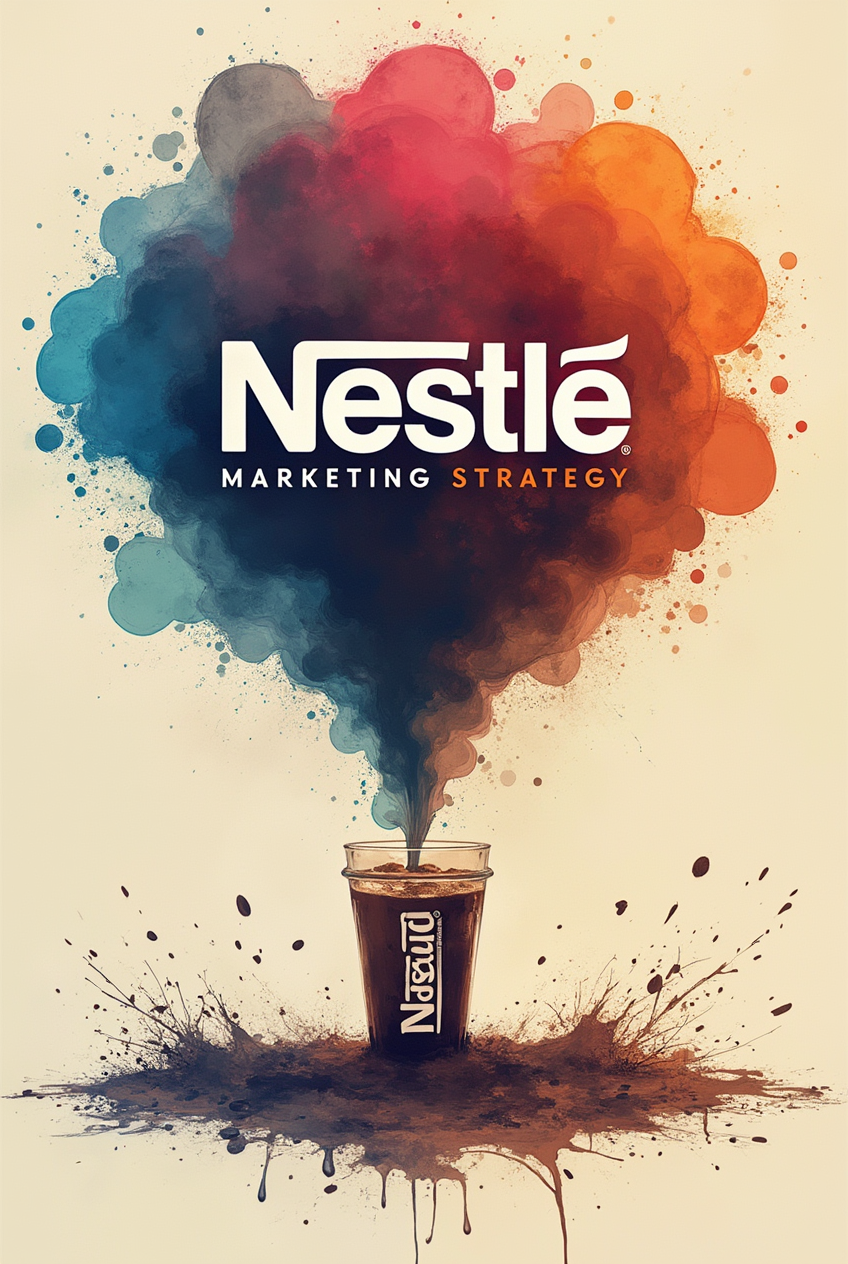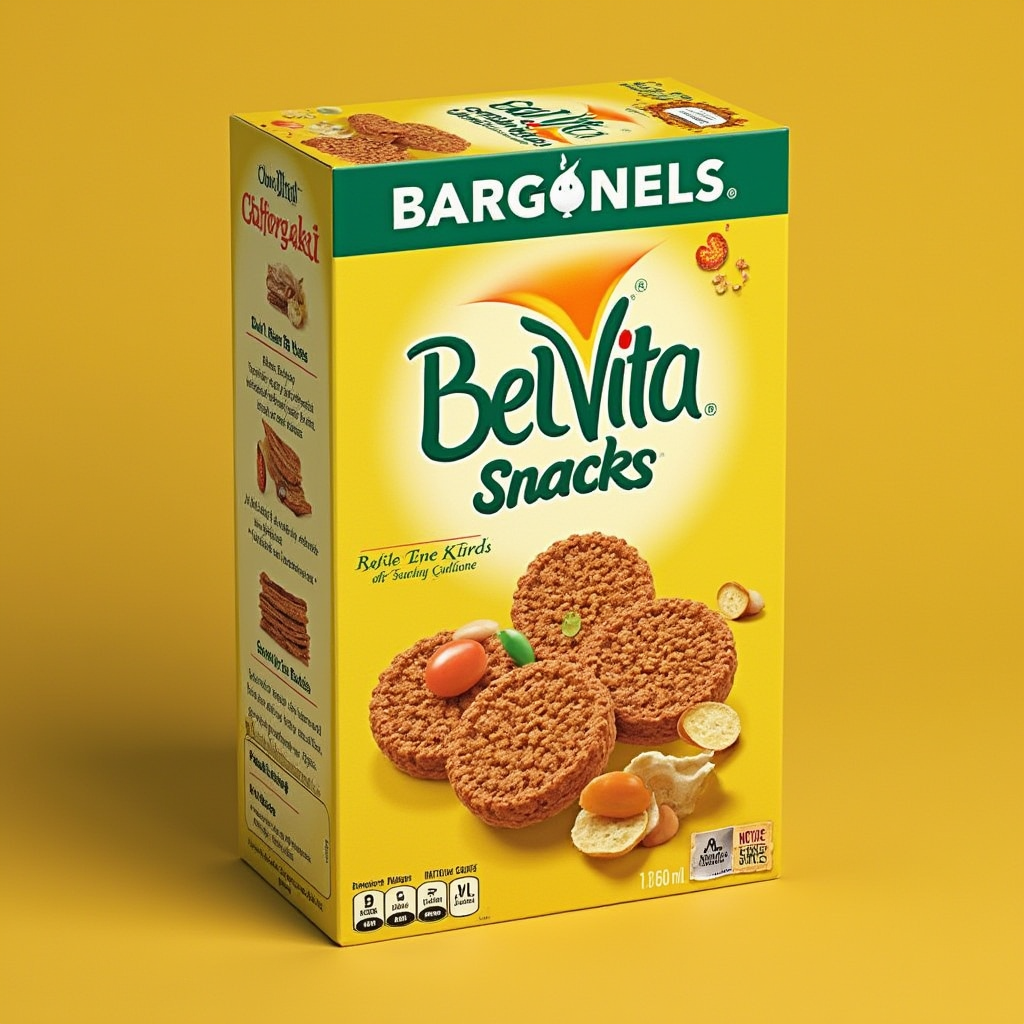Nestlé, the world’s largest food and beverage company, has earned a formidable reputation for its comprehensive and adaptive marketing strategy. As a key player in the global market, Nestlé employs a marketing approach that emphasizes quality, innovation, and the cultivation of strong customer relationships. The significance of this marketing strategy lies in its ability to respond rapidly to changing consumer preferences, competitive pressures, and emerging market trends, thus securing Nestlé’s position as a leader in the industry.
The foundation of Nestlé marketing strategy is its commitment to quality. With a diverse range of products, including dairy, confectionery, nutrition, and beverages, Nestlé seeks to maintain the highest standards across its offerings. This commitment enhances brand loyalty, as consumers are more inclined to choose products that they trust and believe in. Furthermore, Nestlé’s focus on quality is not limited to product efficacy but extends to ethical sourcing and sustainability practices, which resonate deeply with today’s environmentally-conscious consumers.
Innovation is another pivotal aspect of Nestlé’s marketing strategy. The company invests significantly in research and development to create new products and improve existing ones. This proactive approach not only differentiates Nestlé from its competitors but also aligns its offerings with emerging lifestyle trends, ensuring that it meets the evolving needs of consumers. By launching health-oriented products and adapting to dietary shifts, Nestlé showcases its ability to remain relevant in a fast-paced market.
Finally, the establishment of strong customer relationships is integral to Nestlé’s marketing strategy. Through targeted engagement and personalized experiences, Nestlé listens to consumer feedback and adapts accordingly. This two-way communication fosters brand loyalty and enhances consumer trust. As a result, Nestlé’s marketing strategy is not just about selling products but about building lasting connections with consumers, ultimately driving sustained business growth in the global arena.
Table of Contents
Market Penetration and Localization
Nestlé’s marketing strategy is characterized by its adept approach to market penetration, particularly through localization. Operating in 187 countries, Nestlé recognizes the importance of adapting its products to suit local tastes and cultural preferences. This nuanced understanding of regional markets allows the company to establish a strong brand presence and foster consumer loyalty.
One prominent example of Nestlé’s localization strategy is seen in the unique flavor offerings of KitKat in Japan. The Japanese market is known for its diverse palate, prompting Nestlé to introduce an array of innovative flavors such as matcha, sake, and wasabi. This commitment to local preferences not only differentiates Nestlé’s products but also garners attention and enthusiasm from consumers. Consequently, KitKat has become a cultural icon in Japan, successfully integrating itself into the everyday lives of its consumers.
Similarly, Nestlé has adapted its Maggi noodles to align with Indian culinary preferences. Recognizing the importance of regional spices and flavors in Indian cuisine, Nestlé has introduced variants that resonate with the local populace. Instant noodle flavors like masala and curry have contributed to Maggi’s substantial market share in India, demonstrating how Nestlé’s marketing strategy embraces localization to enhance its appeal.
Through these tailored marketing approaches, Nestlé effectively penetrates diverse markets, ensuring that its products are not merely accepted but celebrated. By respecting and embracing local customs and tastes, the company strengthens its connection with consumers, resulting in long-term brand loyalty. The strategic emphasis on localization thus plays a pivotal role in the effectiveness of Nestlé’s marketing strategy, allowing it to thrive in a competitive global landscape.
Diverse Product Portfolio
Nestlé, a leading global food and beverage company, has established a comprehensive marketing strategy that hinges on its diverse product portfolio. The organization’s extensive range of products includes categories such as beverages, dairy, nutrition, confectionery, and pet care, which allows it to appeal to a wide array of consumer segments. This diversification is not merely a business strategy; it represents Nestlé’s commitment to meeting the varying needs and preferences of consumers worldwide.
By operating in multiple categories, Nestlé possesses the ability to mitigate risks associated with changing market dynamics. For instance, fluctuations in consumer preferences or economic conditions often affect one category more than others. With a presence in various sectors, Nestlé can leverage successful products to balance any downturns in sales within less popular segments. This adaptability is crucial in the highly competitive food and beverage industry and is a defining characteristic of the Nestlé marketing strategy.
Each product line is tailored to cater to specific consumer needs. For example, the dairy segment includes products that emphasize nutrition and health, such as yogurt and milk, appealing to health-conscious consumers. Similarly, the pet care products are designed not just for functionality but also focus on emotional appeal, catering to pet owners’ desires to enhance their pets’ quality of life. This strategic segmentation ensures that Nestlé remains responsive to consumer demands across different market segments.
Furthermore, the company continually innovates within its product categories, ensuring that its offerings remain relevant. Nestlé invests in research and development to anticipate trends and adapt its products accordingly. This ongoing improvement in product variety solidifies Nestlé’s competitive advantage and reinforces its dedication to delivering high-quality goods. Ultimately, the firm’s extensive and diverse product portfolio is integral to its success and a cornerstone of the Nestlé marketing strategy.
Pricing Strategies
Nestlé employs a comprehensive array of pricing strategies designed to ensure broad accessibility of its products across various market segments. A key component of the nestlé marketing strategy is the implementation of multiple pricing tactics that are tailored to meet the diverse needs of consumers, thereby enhancing overall market penetration. This approach allows the company to cater to individuals from different income groups, ensuring that its products remain appealing and affordable.
One notable strategy involves bundle pricing, where Nestlé packages complementary products together at a discounted rate. This tactic not only promotes higher sales volumes but also encourages consumers to try new items within the bundle. For instance, offering a bundle of coffee with creamers can enhance consumer experience while simultaneously driving product awareness. This strategy is particularly effective in reaching budget-conscious consumers who may be looking for value opportunities in their purchasing decisions.
Another vital aspect of Nestlé’s pricing strategy is the variation in packaging sizes. By offering products in multiple sizes, Nestlé caters to different consumption needs and preferences. Smaller, more affordable packages can attract price-sensitive customers, while larger sizes may appeal to families and frequent users seeking cost savings. This flexibility in packaging not only broadens the customer base but also reinforces brand loyalty, as consumers are more likely to choose a brand that recognizes and responds to their individual purchasing habits.
Moreover, Nestlé monitors competitive pricing closely and adjusts its pricing framework in real-time to remain attractive in a constantly evolving market landscape. This dynamic approach allows the company to sustain its competitive edge while also aligning with its overarching nestlé marketing strategy. Such thoughtful pricing strategies contribute significantly to Nestlé’s reputation for affordability and quality, ultimately enhancing market reach and consumer satisfaction.
Promotion and Branding
Nestlé employs a multifaceted promotion strategy that is pivotal in forging emotional connections with consumers. One of the most iconic campaigns associated with the company is the ‘Have a break, have a KitKat!’ slogan, which has transcended generations. This campaign effectively communicates the essence of the product, positioning KitKat not simply as a chocolate bar, but as a moment of indulgence deserving of a break in a busy day. The simplicity and relatability of this message resonate powerfully with audiences, illustrating how Nestlé marketing strategy hinges on connecting with their target consumer’s lifestyle.
In addition to traditional advertising approaches, Nestlé has embraced sustainability as a core element of its branding efforts, as evidenced by initiatives like ‘Generation Regeneration.’ This campaign underscores the company’s commitment to environmental stewardship and showcases their efforts to promote sustainable sourcing and production practices. By aligning their branding with sustainability, Nestlé not only appeals to environmentally conscious consumers but also enhances brand loyalty and trust. This approach highlights the increasing importance of corporate social responsibility in modern marketing strategies.
Moreover, Nestlé fully capitalizes on the power of social media by engaging in strategic partnerships with chefs and influencers. These collaborations enhance brand visibility and authenticity, enabling Nestlé to reach a wider audience and attract younger consumers who are increasingly influenced by social media personalities. Influencers create relatable content that showcases Nestlé products in everyday settings, making the brand more accessible and appealing. By integrating these promotional techniques, Nestlé reinforces its position in a competitive market while building strong emotional ties with its consumers, thereby significantly contributing to its comprehensive marketing strategy.
Digital Marketing Approaches
Nestlé has effectively integrated digital marketing into its comprehensive marketing strategy, positioning itself as a frontrunner in the consumer goods industry. By leveraging data analytics, the company is able to gain invaluable insights into consumer behavior and preferences, which informs its marketing tactics. This analytical approach allows Nestlé to tailor its messaging, ensuring that it resonates with specific target demographics, ultimately driving engagement and sales.
Social media platforms serve as a vital component of Nestlé’s digital marketing framework. The company actively participates in various platforms, including Facebook, Instagram, and Twitter, to foster communication and interaction with consumers. Through engaging content, such as visual storytelling and customer testimonials, Nestlé cultivates a community around its brand. The ability to respond in real time to feedback and queries helps to build trust and loyalty among consumers, reinforcing the effectiveness of its nestlé marketing strategy.
Content marketing is another significant aspect of Nestlé’s digital outreach. The company focuses on delivering informative and valuable content, particularly in the realms of nutrition and culinary inspiration. By providing recipe suggestions, cooking tips, and nutritional advice, Nestlé positions itself as a reliable resource for consumers. This not only enhances brand perception but also directly encourages product use, as consumers are more likely to purchase products that are associated with enjoyable and healthy meal options.
In essence, Nestlé’s digital marketing approaches through data analytics, social media engagement, and compelling content marketing have significantly contributed to the brand’s success. By continuously adapting to evolving digital trends and consumer needs, Nestlé remains committed to strengthening its connection with consumers, ultimately reinforcing its status as a leader in the industry.
Customer Engagement Strategies
Nestlé has developed a multifaceted approach to customer engagement, recognizing its crucial role in enhancing brand loyalty and fostering long-term relationships with consumers. One cornerstone of this strategy is the implementation of loyalty programs that reward repeat purchases and encourage customer retention. By offering incentives such as discounts, exclusive products, and promotional offers, Nestlé not only compels customers to return but also builds a community around its brand. These loyalty initiatives are strategically designed to create a connection between the consumer and the brand, ensuring that clients feel valued and appreciated.
In addition to loyalty programs, personalized marketing efforts have become an integral part of Nestlé marketing strategy. By leveraging data analytics and consumer insights, the brand tailors its messaging and product recommendations to meet the individual preferences of its customers. For example, through targeted email campaigns and personalized promotions, Nestlé can engage customers with content that resonates with their specific interests and shopping habits. This level of personalization enhances consumer experiences and drives higher engagement rates, as customers are more likely to respond positively to offerings that reflect their unique tastes.
The effectiveness of these customer engagement strategies extends beyond immediate sales; they contribute significantly to the overall perception of the Nestlé brand. By cultivating a sense of loyalty and trust among consumers, Nestlé positions itself as a brand that listens to and values its customers. This not only boosts repeat purchases but also encourages word-of-mouth referrals, expanding the brand’s reach and consumer base. Ultimately, through innovative loyalty schemes and personalized marketing, Nestlé’s comprehensive marketing strategy effectively reinforces its commitment to customer satisfaction and engagement, ultimately leading to sustained growth and success.
Challenges Faced in Marketing
In the ever-evolving landscape of the food and beverage industry, Nestlé encounters numerous challenges in executing its marketing strategy effectively. One of the foremost challenges is the intense global competition. As a leader in the market, Nestlé competes with a myriad of both established brands and emerging local players. This competition drives not just pricing strategies but necessitates the constant reassessment of marketing tactics to maintain market share. The presence of fierce competitors means that Nestlé must innovate continuously to differentiate its products and capture consumer attention in diverse markets.
Another significant hurdle is the shifting consumer preferences that have emerged over recent years. Today’s consumers are more informed and health-conscious than ever before, which prompts them to seek transparency in product sourcing and production. This change in consumer behavior challenges Nestlé to adapt its marketing strategy to emphasize health benefits, sustainability, and ethical sourcing. Failing to align with these consumer trends may result in a loss of brand loyalty and market relevance, making effective marketing campaigns essential in addressing these concerns.
Moreover, continuous innovation becomes critical in light of these changing preferences and market dynamics. Nestlé must not only develop new products that cater to health-conscious consumers but also know how to market them effectively. The challenge lies in balancing innovation while also ensuring that existing products remain attractive to retaining the current customer base. This often requires substantial investment in research and development, alongside strategic marketing initiatives that communicate the value and benefits of both new and existing offerings.
These challenges illustrate that the Nestlé marketing strategy is not merely about promoting products; it involves navigating a complex environment of competition, consumer expectations, and the imperative for innovation. By addressing these challenges, Nestlé strives to maintain its position as a leader in the industry while adapting to a landscape that is constantly in flux.
Future Trends in Nestlé Marketing Strategy
As we look towards the future, numerous trends are poised to significantly influence Nestlé marketing strategy. One of the foremost drivers of change is the evolution of consumer behavior. Today’s consumers are increasingly health-conscious, seeking products that align with their wellness goals. This shift is likely to encourage Nestlé to diversify its portfolio further, placing a stronger emphasis on nutritious offerings and transparency regarding ingredients. Such adaptations may help the company maintain relevance in a market that values health and wellness as key considerations in purchasing decisions.
In addition to changes in consumer preferences, technological advancements will also play a critical role in how Nestlé shapes its marketing strategy. The rise of digital technology has transformed consumer engagement, leading to more personalized marketing approaches. Utilizing data analytics and artificial intelligence can provide Nestlé with insights into consumer behavior, enabling the company to tailor its messages effectively. Enhanced digital strategies will likely include leveraging social media platforms and influencers, ensuring that their branding resonates with a more digital-savvy audience.
Sustainability initiatives will remain a focal point for Nestlé as well. As global awareness of environmental issues continues to rise, consumers are increasingly favoring brands that demonstrate a commitment to sustainable practices. Nestlé marketing strategy may evolve further to showcase its efforts in sustainability, focusing on environmentally friendly packaging, responsible sourcing, and community engagement. These initiatives are expected to resonate with consumers who not only consider product quality but also ethical and environmental implications in their purchasing decisions.
Overall, the interplay of evolving consumer behaviors, technological innovation, and sustainability efforts will likely shape the trajectory of Nestlé marketing strategy in the upcoming years.
Conclusion
In conclusion, Nestlé’s comprehensive marketing strategy has played a crucial role in establishing and maintaining its position as a leader in the global food and beverage industry. By employing multifaceted approaches that resonate with diverse consumer segments, Nestlé has effectively managed to enhance its brand performance and customer loyalty.
The marketing strategy of Nestlé incorporates a deep understanding of local markets, consumer preferences, and emerging trends. This enables the company to tailor its products and messaging to suit the specific needs of its target audience. Through innovative advertising campaigns, product diversification, and strong digital engagement, Nestlé successfully fosters relationships with customers, ensuring that the brand remains top-of-mind.
Moreover, sustainability initiatives and a commitment to health and wellness further strengthen Nestlé’s market positioning. By aligning its marketing strategy with broader societal trends, the company demonstrates its responsiveness to consumer demands for responsible business practices. This proactive stance not only boosts brand reputation but also engenders trust among consumers, thereby enhancing loyalty and long-term profitability.
Overall, the effectiveness of Nestlé’s marketing strategies in engaging consumers is evident. The company’s ability to adapt and innovate continuously positions it favorably against competitors. As a result, Nestlé not only addresses current market challenges but also anticipates future demands, ensuring sustained growth. The holistic marketing approach adopted by Nestlé serves as a powerful case study on how integrated strategies can lead to significant advantages in brand performance and consumer relationships.










